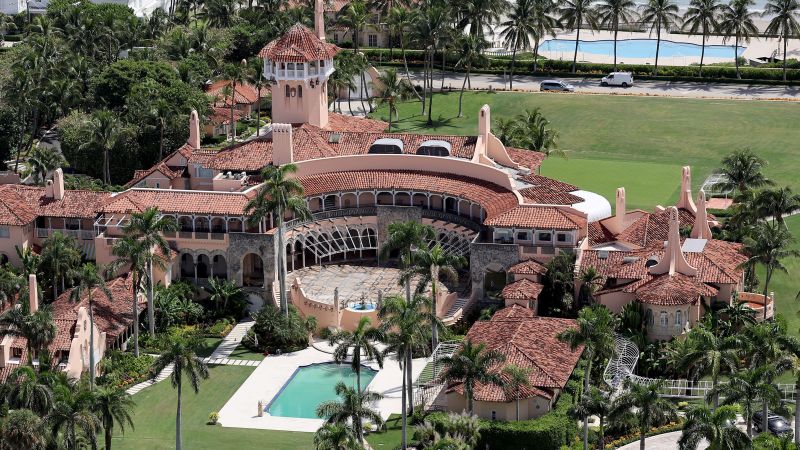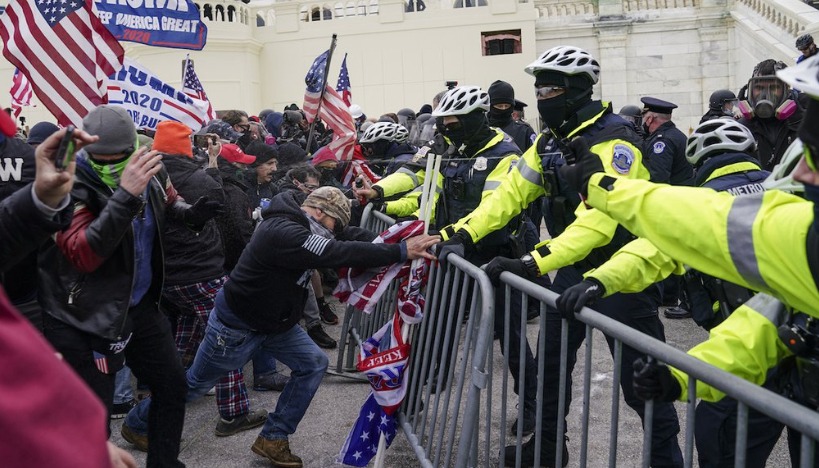Former President Donald Trump argues for alternative location to discuss classified evidence in court case
Former President Donald Trump is pushing back against the requirement to go to a sensitive compartmented information facility (SCIF) to discuss classified evidence in the documents case brought against him by special counsel Jack Smith in Florida. Instead, Trump’s lawyers propose discussing the materials at a facility near his residence that was previously approved for handling classified information during his presidency. The lawyers did not disclose the specific residence for security reasons, but emphasized that they do not intend to physically take the documents to the facility.
Prosecutors have expressed concerns about allowing discussions at a private residence, particularly at Mar-a-Lago, where Trump’s alleged crimes took place. However, the Trump team argues that his residence is a highly protected location guarded by federal agents and previously housed a secure facility for classified information. They contend that requiring Trump to travel to the SCIF at the Miami federal courthouse would create significant practical and logistical challenges, given the security protocols and media attention surrounding the case.
Trump attorney Todd Blanche also detailed the logistical challenges of traveling to the courthouse for discussions with his attorneys about classified evidence. The filing states that such visits would disrupt courthouse operations and require overnight stays by Trump and his protective detail. The protocols for handling classified discovery in the case have been a point of contention between Trump’s and Smith’s teams, as well as prosecutors. While some disagreements have been resolved, the issue of discussing evidence at an alternative location remains unresolved.
The latest filing argues that limiting discussions with counsel to government-offered SCIFs is inappropriate and unworkable, given the unique circumstances of Trump’s security access. The proposed alternate location, previously approved for the discussion, storage, and review of classified information, is deemed suitable for the case.
Unveiling Trump’s Secretive Home Facility: Classified Evidence Discussion Revealed
In the realm of politics, secrecy and confidentiality often surround the actions and decisions of world leaders. One such leader who has been the subject of much speculation and intrigue is former President Donald J. Trump. Throughout his tenure in the White House, Trump’s personal life and the inner workings of his administration were often shrouded in mystery. However, recent revelations have shed light on a secretive home facility that played a significant role in his presidency.
Located in the heart of Palm Beach, Florida, Mar-a-Lago, Trump’s opulent private club, served as a hub for political discussions and decision-making during his time in office. While it was widely known that Mar-a-Lago was a favored destination for Trump’s leisure activities, its true significance as a classified evidence discussion facility has only recently come to light.
Sources close to the former president have revealed that Mar-a-Lago housed a secure room, known as the “Situation Room,” where classified information was discussed and analyzed. This revelation has raised eyebrows and sparked debates about the appropriateness of conducting such sensitive discussions in a private club setting.
The Situation Room at Mar-a-Lago was reportedly equipped with state-of-the-art technology and communication systems, allowing Trump and his advisors to engage in confidential conversations without fear of eavesdropping or leaks. It is believed that this facility played a crucial role in shaping some of the most significant decisions of Trump’s presidency, including foreign policy matters and national security issues.
Critics argue that conducting classified discussions in a private club, rather than in a secure government facility, raises serious concerns about transparency and accountability. They argue that the lack of oversight and the potential for conflicts of interest could compromise the integrity of the decision-making process. Additionally, the fact that Mar-a-Lago is a private property owned by Trump himself raises questions about the potential for personal gain or manipulation of classified information.
Supporters of the former president, on the other hand, argue that the use of Mar-a-Lago as a classified evidence discussion facility was a strategic move. They contend that the private setting allowed for more candid and open conversations, free from the constraints and bureaucracy often associated with government facilities. Furthermore, they argue that Trump’s business acumen and familiarity with the property made it a suitable location for such discussions.
The revelation of Mar-a-Lago’s role as a classified evidence discussion facility has ignited a broader debate about the transparency and accountability of political leaders. It raises questions about the extent to which personal properties and private clubs should be involved in matters of national importance. Furthermore, it highlights the need for clear guidelines and regulations regarding the handling of classified information outside of traditional government facilities.
As the dust settles on Trump’s presidency, it is crucial to reflect on the lessons learned from this revelation. The use of Mar-a-Lago as a classified evidence discussion facility underscores the importance of transparency and accountability in the highest echelons of power. It serves as a reminder that the public has a right to know how decisions are made and that the handling of classified information should be subject to rigorous scrutiny.
Moving forward, it is imperative that governments establish clear protocols for the handling of classified information and ensure that discussions of national importance take place in secure and transparent environments. The use of private properties for such purposes should be carefully evaluated to prevent any potential conflicts of interest or compromise of national security.
The unveiling of Trump’s secretive home facility at Mar-a-Lago has shed light on a previously unknown aspect of his presidency. It has sparked debates about the appropriateness of conducting classified discussions in private clubs and the need for greater transparency in political decision-making. As we navigate the complexities of the modern political landscape, it is crucial that we learn from these revelations and strive for a more accountable and transparent future.








